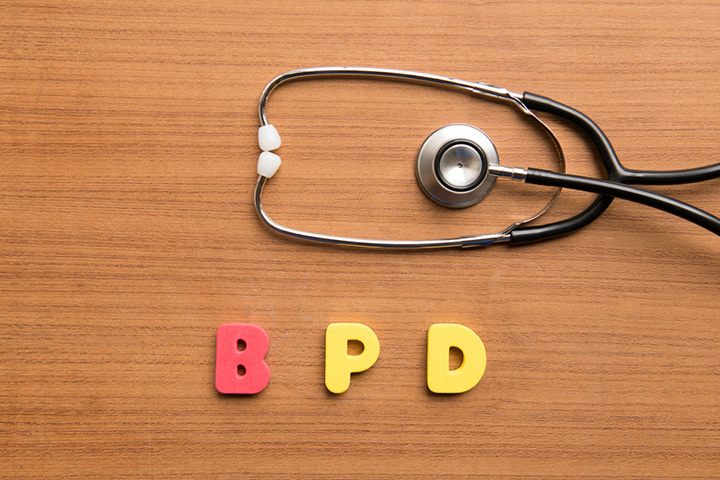What Causes Bpd In Babies
As a parent, nothing can be more heartbreaking than watching your little one struggle with Bronchopulmonary Dysplasia (BPD). This respiratory disorder affects the lungs of premature babies and infants who require mechanical ventilation to breathe. While most babies with BPD recover fully, the journey can be a long one. And as a parent, it's essential to be informed about what to expect, how to cope, and what treatment options are available.
What is BPD?
Bronchopulmonary Dysplasia (BPD) is a type of chronic lung disease that primarily affects premature infants. Infants with BPD are born prematurely, and their lungs are still developing. They need help breathing, often through a mechanical ventilator or nasal continuous positive airway pressure (CPAP). The constant need for oxygen and exposure to mechanical ventilation increase the baby's chances of developing BPD.
BPD is a complex condition characterized by respiratory distress, airway inflammation, and structural damage to the lungs. The lungs of babies with BPD are underdeveloped, which means they aren't able to get enough oxygen into their bloodstream. As a result, infants with BPD may require oxygen therapy, and their lung function may not be fully restored.
What Causes BPD?
The exact cause of BPD is unknown, but there are several factors that can contribute to the development of the condition. The primary contributor is premature birth, which is defined as a birth that occurs before 37 weeks of gestation. Premature babies may not have fully developed lungs, which means they're more susceptible to lung damage.
Other factors that can contribute to BPD include:
- Prolonged use of mechanical ventilation
- Oxygen toxicity
- Infection
- Inflammation
- Genetic predisposition
- Nutrition
BPD Symptoms
The symptoms of BPD can vary depending on the severity of the condition. Infants with mild BPD may not exhibit any symptoms and may require little or no treatment. However, infants with severe BPD may have frequent episodes of respiratory distress and require constant medical attention. The symptoms of BPD can include:
- Shortness of breath
- Rapid breathing
- Wheezing
- Coughing
- Cyanosis (bluish tint to the skin)
- Poor weight gain and growth
BPD Treatment
Treatment for BPD will depend on the severity of the condition. Mild cases of BPD may not require any specific treatment, while severe cases may require hospitalization and intensive care. Below are some of the treatment options available for infants with BPD:
- Oxygen therapy: This involves supplying the baby with oxygen through a nasal cannula or mechanical ventilator.
- Medications: Certain medications may help decrease inflammation and improve lung function. Examples of these medications include diuretics, corticosteroids, and bronchodilators.
- Nutritional support: Infants with BPD may require a high-calorie diet to promote weight gain and growth.
- Surgery: In some cases, surgery may be necessary to repair lung damage or remove obstructive tissue.
- Preventative strategies: There are several preventative strategies that can help minimize the risk of BPD, including using less invasive ventilation techniques and using surfactant therapy to improve lung function.
BPD vs. Bipolar Disorder
It's essential to distinguish BPD from Bipolar Disorder, as the two conditions are often confused. Bipolar Disorder is a mental health condition characterized by extreme shifts in mood and energy. It's not related to Bronchopulmonary Dysplasia, which is a respiratory disorder.
Some of the symptoms of Bipolar Disorder may include:
- Mood swings
- Feelings of sadness or hopelessness
- Manic episodes (feelings of high energy and impulsivity)
- Sleep disturbances
- Difficulty concentrating
Treatment for Bipolar Disorder may involve medication, therapy, and lifestyle changes.
Conclusion
Dealing with a premature baby who requires mechanical ventilation and develops BPD can be incredibly stressful and challenging. As a parent, it's crucial to stay informed about the condition and what to expect, so you can best support your child. By understanding the symptoms, treatment options, and preventative strategies, you'll be better equipped to navigate the ups and downs of your baby's journey. If you have concerns or questions about your baby's health, always consult with a healthcare professional.
:max_bytes(150000):strip_icc()/bpd-vs-bipolar-5096132_FinaL-e946be6d6df04527a2a043e6e974abd0.jpg)
